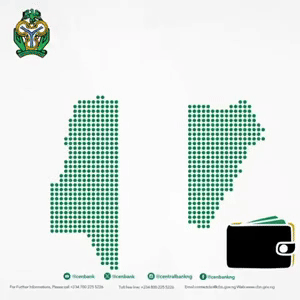TelCables’ Clouds2Africa, a flagship enterprise-grade cloud platform designed to meet the growing demand for secure, compliant, and locally hosted digital infrastructure in Africa.
Speaking on the company’s operation in Nigeria, CEO of TelCables Nigeria & West, Fernando Fernandes, explained that specifically in Nigeria, the platform addresses key concerns around data sovereignty, performance, and cost-efficiency, which have historically been challenges with international cloud services including billing in FX where we provide an alternative billed in Nigerian Naira.
He said: “We’ve made the platform financially accessible by billing in Naira and removing common barriers like ingress and egress fees. This pricing transparency, along with local technical support and account management, ensures that customers not only have a world-class cloud platform at their fingertips but also a trusted local partner to guide their digital transformation journey”.
“What sets Clouds2Africa apart is that it’s hosted locally in Tier III data centers in Lagos, ensuring low-latency access and compliance with national data protection regulations, such as Nigeria’s Data Protection Act. This proximity to users also translates into faster response times for applications and services—something that is critical for sectors like finance, healthcare, and insurance,”” he said.
Fernandes said that from an implementation perspective, the company has taken a phased and market-aligned approach. Clouds2Africa is already serving several enterprise clients by providing virtual machines, storage, and backup solutions tailored to their specific workloads. We offer flexible service models, including dedicated private cloud environments and hybrid deployments for clients with legacy infrastructure or regulatory constraints.
He explained that one major differentiator is our partner enablement strategy. We’re actively working with local ISPs, system integrators, and cloud resellers to integrate Clouds2Africa into their portfolios through white-label offerings and revenue-sharing models. This has accelerated adoption while creating opportunities for local technology ecosystems to thrive.
He said the benefits and comparative analysis of Clouds2Africa to other international cloud industry leaders, that sparked meaningful conversations on Clouds2Africa as a competitive alternative.
“Clouds2Africa is gaining a lot of attention in the Nigerian and broader African ICT space because it’s more than just a cloud platform—it’s a solution that speaks directly to the needs of local businesses, startups, and institutions. Unlike many international providers, Clouds2Africa is fully hosted in Nigeria, with two nodes in Lagos, ensuring complete data residency and compliance with local regulations like the NDPR”.
According to him, one of the major differentiators is cost efficiency and accessibility. We offer a flexible “Pay as You Grow” model, charge in Naira to eliminate FX risk, and importantly, data transfer in and out is completely free—this is a huge win for SMEs and enterprises dealing with large data volumes.
He further explained that performance is also a key edge adding that since everything is hosted locally, latency is drastically reduced compared to international providers whose servers are often located in Europe or the US. This means faster access to cloud resources, improved application responsiveness, and a better end-user experience.
“On top of that, our technical support is local and available 24/7, handled by Nigerian professionals who understand the regulatory environment and the unique challenges of operating in this market. Contrast that with international platforms, where support may come from different time zones and lack regional context,” he said.
“But perhaps what’s most exciting is the economic impact—Clouds2Africa generates jobs, strengthens local tech ecosystems, and empowers service providers through white-label solutions and local partnerships. This is in stark contrast to international providers, where most of the value—and profit—is exported abroad,” he added.
Fernandes added that expanding Nigeria’s tech base requires a deliberate, forward-looking policy framework—one that promotes infrastructure development, digital inclusion, innovation, and investment. While we’ve seen progress through initiatives like the Nigeria Startup Act and the Data Protection Act, there’s still a need for broader alignment across sectors to truly scale impact.
“First, we need policies that prioritize digital infrastructure. That includes incentives for private sector investment in fiber optics, data centers, and local cloud platforms like Clouds2Africa. Infrastructure is the bedrock—without reliable connectivity and hosting capabilities, businesses can’t build or scale digital services,” he said.
Second, regulatory clarity is key—particularly around data sovereignty, cybersecurity, and cloud adoption. When businesses are confident that their operations comply with local laws and that their data is secure and protected within national borders, they are more likely to adopt technology and digitize their operations. The NDPR is a strong step in this direction, but we need stronger enforcement and harmonization with other regulatory agencies.
Third, access to capital and incentives for tech-driven SMEs and startups will accelerate innovation. Tax incentives for tech incubators, local cloud usage, and R&D investments can go a long way in helping new ideas gain traction and grow into viable businesses.
Lastly, talent development must be embedded in national policy. Programs like the 3 Million Technical Talent (3MTT) initiative are excellent starts, but we need deeper integration of tech training in public education, with a focus on practical skills in cloud, AI, cybersecurity, and software development.
The impact of such a framework would be transformative. It would enable businesses in finance, healthcare, education, agriculture, and logistics to become more efficient, competitive, and scalable. It would also position Nigeria as a digital services hub—not just for West Africa, but for the broader continent.
He said that one of the biggest obstacles to building a truly effective digital infrastructure in Africa is the fragmentation and uneven distribution of core infrastructure—particularly terrestrial fiber networks and neutral data centers. In many countries, the infrastructure is concentrated in major cities, leaving rural and underserved regions disconnected or reliant on expensive satellite or mobile broadband solutions.
“There’s also the high cost of deployment and access. Building and maintaining digital infrastructure—like subsea cables, metro fiber, and carrier-neutral data centers—is capital intensive. Many operators face regulatory bottlenecks, import duties, and lack of incentives that make expansion slow and financially burdensome. These costs eventually cascade down to the end-users, limiting digital adoption among small businesses, startups, and public institutions,” he said.
Another major challenge, he said, is the limited availability of localized cloud infrastructure. Without in-country hosting, African enterprises are forced to rely on foreign cloud services, which introduces high latency, compliance risks, and higher costs due to currency fluctuations and data transfer fees.
Then there’s the issue of policy and regulatory inconsistency across the continent. While some governments are pushing progressive digital policies, others lag behind or lack the frameworks that encourage infrastructure investment, cross-border connectivity, and data governance. We need harmonized digital policies across regions like ECOWAS and the African Union to support continental-scale infrastructure.
Lastly, power and talent deficits cannot be overlooked. A significant portion of the continent still lacks reliable electricity—which is critical for running data centers and network operations. And even when the infrastructure exists, we often don’t have enough skilled professionals—network engineers, cloud architects, cybersecurity experts—to scale and maintain it effectively.
He said that over the next five years, TelCables is positioned to become a cornerstone of Nigeria’s digital infrastructure and economic growth. We are already making significant strides, and our trajectory is defined by three key pillars: network expansion, cloud growth, and strategic investments.
“Currently, we’re deepening our network infrastructure across Lagos, connecting more hubs to our global backbone. This includes expanded access to key IP hubs and integration with major data centers, ensuring that enterprises—from startups to large institutions—can access world-class connectivity with low latency and high resilience,” he said.
“Simultaneously, we are scaling our Clouds2Africa platform and implementing a secondary node in Lagos and evaluations for new nodes across other regions of Nigeria and West Africa aim to support growing demand for data sovereignty, business continuity, and localized digital transformation,” he added.
In 2025 alone, the company said it will be committing over $$1 million in capital investment to support these initiatives—building out our infrastructure, enhancing service offerings, and enabling innovation across verticals like fintech, healthtech, education, and government services.
The impact of these efforts will be multifaceted. For businesses, it means better access to affordable digital infrastructure, faster time to market, and stronger data compliance. For the economy, it translates to job creation, support for SMEs and digital startups, and a stronger foundation for Nigeria to position itself as a tech-driven economic powerhouse on the continent.


